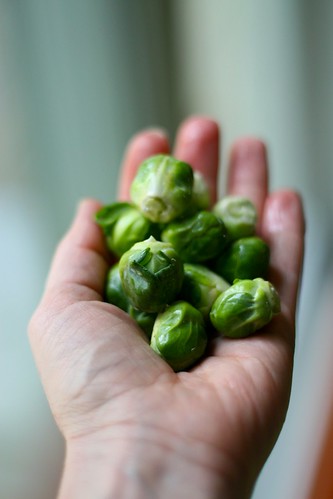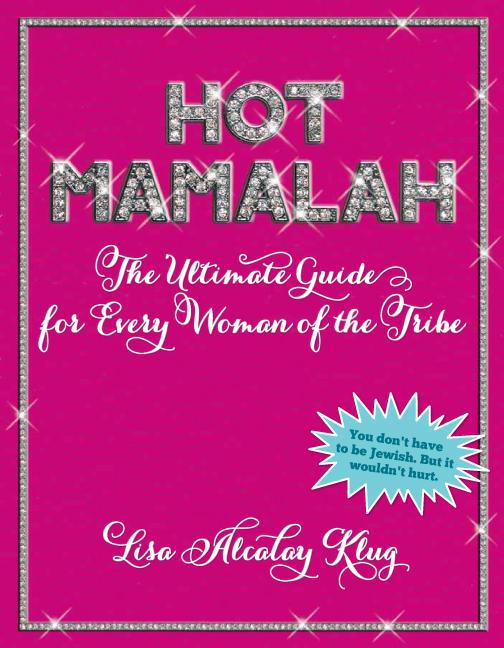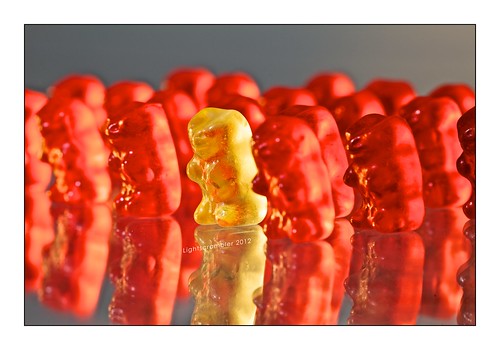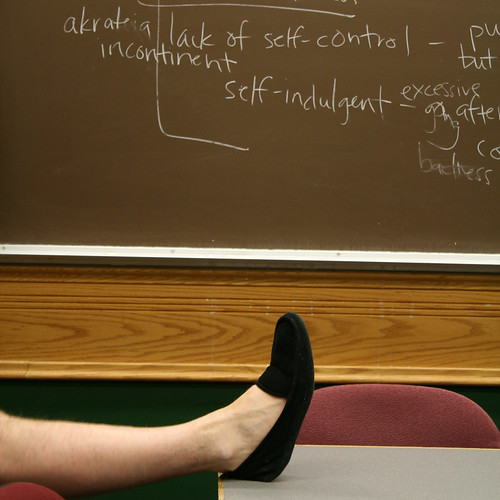Sometimes there are perks to being a food blogger, even though I don't have a large audience (yet?). I received a personal invitation to the Manitoba Food Producers' Association's Christmas reception. The MFPA represents many of Manitoba's local food producers, and as an avowed locavore and champion of local groceries, of course I was pleased to attend.
Aside from the delicious, locally-made food I was bound to find there (and which did not disappoint), I was particularly interested in speaking with a few people. I was glad to find the Buy Manitoba representatives at their station: Megan and Gemma are lovely ladies who were happy to explain things to me. There have been some rumblings among the Manitoba Food Bloggers and others about the generous definition of local that Buy Manitoba uses - apparently it extends to soft drinks bottled in the province by multinational companies, and to Safeway eggs which might come from any of four provinces in a given carton. I am hopeful that somebody from Buy Manitoba will respond and tell us how Coke is a local producer.
I have to say, though, that pretty much everything I saw at the Caboto Centre that night was definitely locally made. Cakes from Gunn's and Jeanne's, delightful northern pike cooked on the spot, Bothwell cheeses, locally made samosas and sausages. I even found Manitoba birch syrup, which I can't wait to get and try.
I somehow missed Constance Popp's chocolates, which makes me very sad. All I can think of is that she must have got there after I left, which was pretty early as I had to go see my sons sing and dance (ah, the things we do for love. They were wonderful, though).
I had some very interesting conversations with the representatives of Manitoba Agriculture, Food and Rural Intiatives - in particular, their Food Safety people. I asked them what they thought about the illegality of raw milk in this province, and I got a remarkable range of responses (all off the record, I should add). One person told me she was completely against legalising raw milk, and that in her opinion people shouldn't be able to buy raw meat, either. Another representative referred me to the movie "Forks Over Knives", which espouses a vegan diet. A third was more supportive of the availability of raw milk to adults, but was understandably concerned about the dangers of trying to introduce it into a mass market. We agreed that maybe farm gates sales would be safest, as well as some serious labelling and education. Both of the latter two mentioned (and promptly emailed to me the next day as promised) some reports that have recently surfaced in Indiana - a FAQ sheet from Purdue University, and a report prepared by the Indiana Board of Animal Health for Indiana legislators. While both of them express trepidation about possible health issues, it is clear that the debate is far from over.
What do you think, should Coke that is bottled in this province be considered locally made? And should we be able to buy raw milk at the farm gate, if it is accompanied by a fact sheet on how to use it safely? Or should we ban raw meat, too?
Let me know what you think!
Sunday, December 9, 2012
Wednesday, November 28, 2012
Happiness is a Warm Goat Cheese
The lovely Louise May (she of chicken-at-city-hall fame) taught a cheese-making class at The Food Studio last night, and I was privileged to attend.
Louise has a herd of goats on her farm that she milks herself, and she demonstrated making cheese from commercially available (i.e., pasteurised) local goat's milk, licensed under the Manitoba Dairy Act, as well as raw milk from her farm, which is not.
The Manitoba Dairy Act prohibits the sale of raw dairy in Manitoba, which is very unfortunate for those of us who would prefer it. A farmer may use it for herself or her dependants, but she can't legally even give it away to anyone else, let alone make a living from it. There are many reasons to consider raw milk far superior to pasteurised milk, which is severely denatured. While I understand the public health concerns, it seems to me that a good inspection policy should be able to shut down any farm that operated in unsanitary conditions. It is quite insane that fast food is legal in Manitoba but raw milk is not. Definitely a campaign to consider once Louise is done with the urban chickens!
In any case, we learned how to make chevre, ricotta and feta, all of which turn out nicely with commercial milk, and mozzarella, which in general does not. We were able to compare the milk-curdling capabilities of apple cider vinegar and lemon juice (the apple cider won in terms of flavour). We learned about mesophilic starter culture and vegetable rennet (not made from baby calf stomach lining, yay).

 The Queen of Cheese Making (and source of all the recipes we learned) is Ricki Carroll, founder of the New England Cheesemaking Supply Company. She was mentioned in Barbara Kingsolver's wonderful book (and the beginning of my journey into making stuff rather than buying it): Animal, Vegetable, Miracle: A Year of Food Life (affiliate link).
The Queen of Cheese Making (and source of all the recipes we learned) is Ricki Carroll, founder of the New England Cheesemaking Supply Company. She was mentioned in Barbara Kingsolver's wonderful book (and the beginning of my journey into making stuff rather than buying it): Animal, Vegetable, Miracle: A Year of Food Life (affiliate link).
Ricki's recipes are available online, but also neatly compiled into a book, Home Cheese Making: Recipes for 75 Homemade Cheeses (also an affiliate link).
Because nothing is ever perfect, I did have one complaint - I would have liked Louise to have given us a handout. With so many different kinds of cheese on the go, it became quite confusing to keep track of what goes into what. While I intend to acquire the book (or download my favourite recipes if I am feeling cheap), it would have been easier to make notes on a handout while they were fresh in my mind.
In conclusion, a lovely time was had by all, there was much laughter and discussion as well as some serious learning. If you are interested in artisanal cheese, Louise's classes are a great way to get into it.
Addendum: Louise's recipes can be found at http://aurorafarm.ca/recipes/.

Louise has a herd of goats on her farm that she milks herself, and she demonstrated making cheese from commercially available (i.e., pasteurised) local goat's milk, licensed under the Manitoba Dairy Act, as well as raw milk from her farm, which is not.
The Manitoba Dairy Act prohibits the sale of raw dairy in Manitoba, which is very unfortunate for those of us who would prefer it. A farmer may use it for herself or her dependants, but she can't legally even give it away to anyone else, let alone make a living from it. There are many reasons to consider raw milk far superior to pasteurised milk, which is severely denatured. While I understand the public health concerns, it seems to me that a good inspection policy should be able to shut down any farm that operated in unsanitary conditions. It is quite insane that fast food is legal in Manitoba but raw milk is not. Definitely a campaign to consider once Louise is done with the urban chickens!
In any case, we learned how to make chevre, ricotta and feta, all of which turn out nicely with commercial milk, and mozzarella, which in general does not. We were able to compare the milk-curdling capabilities of apple cider vinegar and lemon juice (the apple cider won in terms of flavour). We learned about mesophilic starter culture and vegetable rennet (not made from baby calf stomach lining, yay).

 The Queen of Cheese Making (and source of all the recipes we learned) is Ricki Carroll, founder of the New England Cheesemaking Supply Company. She was mentioned in Barbara Kingsolver's wonderful book (and the beginning of my journey into making stuff rather than buying it): Animal, Vegetable, Miracle: A Year of Food Life (affiliate link).
The Queen of Cheese Making (and source of all the recipes we learned) is Ricki Carroll, founder of the New England Cheesemaking Supply Company. She was mentioned in Barbara Kingsolver's wonderful book (and the beginning of my journey into making stuff rather than buying it): Animal, Vegetable, Miracle: A Year of Food Life (affiliate link).Ricki's recipes are available online, but also neatly compiled into a book, Home Cheese Making: Recipes for 75 Homemade Cheeses (also an affiliate link).
Because nothing is ever perfect, I did have one complaint - I would have liked Louise to have given us a handout. With so many different kinds of cheese on the go, it became quite confusing to keep track of what goes into what. While I intend to acquire the book (or download my favourite recipes if I am feeling cheap), it would have been easier to make notes on a handout while they were fresh in my mind.
In conclusion, a lovely time was had by all, there was much laughter and discussion as well as some serious learning. If you are interested in artisanal cheese, Louise's classes are a great way to get into it.
Addendum: Louise's recipes can be found at http://aurorafarm.ca/recipes/.
Labels:
cheese,
cheese-making,
chevre,
chickens,
city hall,
feta,
goat,
goats,
Louise May,
Manitoba Dairy Act,
mesophilic starter culture,
mozzarella,
pasteurised,
raw,
ricotta,
The Food Studio,
vegetable rennet
Monday, November 26, 2012
The Core of the Matter
 Today I had an FMS test. That stands for Functional Movement Screen, based on the Functional Movement System. It's a method for gauging a person's movements, to see if any of them need correcting. The trainer had me do all kinds of motions while he took measurements and wrote down a score on a form.
Today I had an FMS test. That stands for Functional Movement Screen, based on the Functional Movement System. It's a method for gauging a person's movements, to see if any of them need correcting. The trainer had me do all kinds of motions while he took measurements and wrote down a score on a form.Well, it was kind of sobering. My score was 9 out of 21, not exactly wonderful. In fact, any person with a score below 15 is apparently prone to injury. I have to say that aside from a chronic frozen shoulder/rotator cuff issue (which was the main reason I wanted the FMS as physiotherapy has done nothing for it) I have not, actually, had any injuries in two years of running and kettlebell training. I suspect that is because I know when to back off.
Anyway, the good news is that I don't have any asymmetries, and I had no zeros, which I suspect means an inability to do the motion at all. I have very little shoulder mobility and favour the sore one, which makes sense, but the main thing is that my core is weak. My lousy balance probably follows from that - in fact, everything probably follows from that. It's not surprising that after three C-sections, two of them vertical, there wouldn't be much muscle tone in that area. But now that ten years have passed since my final surgery, I'm hoping the exercises I will be doing will help restore some strength, even though it is probably a mass of scar tissue inside ... sigh.
Stay tuned as Hadass transforms from wimp to Wonder Woman!!
P.S. The spam comments got a little ridiculous, so I have enabled moderation on all comments (but no CAPTCHAs!). Please be patient ...
Thursday, November 22, 2012
SCD and Paleo and FODMAPs, oh my!
 A little knowledge is a dangerous thing ... and sometimes more knowledge is not better! I am now getting quite confused. It seems that everything is bad for me, and some of the recommendations are contradictory. What's a girl to do?
A little knowledge is a dangerous thing ... and sometimes more knowledge is not better! I am now getting quite confused. It seems that everything is bad for me, and some of the recommendations are contradictory. What's a girl to do?I've been doing the Specific Carbohydrate Diet for a few years now, and I have done very well on it, removing grains, sugar and liquid milk from my diet. It has helped me keep my Inflammatory Bowel Disease under control with no medication, presumably by reducing the inflammation in my gut.
Then I discovered paleo. To be honest, the paleo/primal principles have had more effect on my exercise (walking and lifting heavy rather than chronic cardio and machines) than on my nutrition, as I was already eating free-run eggs (and pastured when available) and organic dairy (made into SCD yoghurt which is fermented for 24 hours to remove all the lactose) in my lacto-ovo vegetarian diet. Removing legumes (aside from occasional lentils) seems to have been beneficial. Moreover, I added fish to my diet back in March, ending 18 years of vegetarianism. Bringing mammals and birds into my kosher dairy kitchen would be a whole other tale, worthy of another blog post. Hasn't happened yet.
I've also, as my faithful readers know, become enamoured of lacto-fermentation, fermenting kale, cabbage (with juniper berries, yum), pearl onions and carrots. Everything I read told me that these would be good for healing my leaky gut. Just as an update, I no longer use mason jars to ferment, but bail-top jars similar to these (affiliate link).
So, along comes the whole FODMAPs thing and completely destroys everything I've been doing. This awkward acronym stands for Fermentable, Oligo-, Di-, Mono-saccharides and Polyols. I'm not going to go into all the details of these (visit the Wikipedia links provided if you really want to know), but in short, all my favourite fermentable foods should be off-limits to people with leaky guts. This despite the lovely lacto-bacilli they harbour which are supposed to be beneficial to the same people. I have no problem with avoiding lactose, grains and pulses, but to cut out all the stone fruits, cruciferous vegetables, onions, nightshades and fungi leaves me with pretty much nothing to eat in the plant department.
Oh, and then JJ Virgin comes along and tells me that eggs are inflammatory, too.
Please, shoot me now.
Labels:
cruciferous,
eggs,
fermentation,
FODMAP,
IBD,
inflammation,
Inflammatory Bowel Disease,
inflammatory food,
lacto-bacilli,
lacto-ovo vegetarian,
nightshades,
onions,
paleo,
Sandor Katz,
SCD,
yoghurt
Tuesday, November 20, 2012
Book review: HOT MAMALAH by Lisa Alcalay Klug

Lisa's publisher very kindly sent me a copy of the book to review, so that's my disclosure.
When I first started reading this book, I felt completely overwhelmed. It really reminded me of some Jewish women that I know, and am somewhat afraid of - you know, those loud, bossy, neurotic types. It looked like this book was a handbook for becoming one of those, and I didn't really want any part of it. I argued with the book, with its lovely line drawings and wild typography, its luscious recipes and brazen declaration of female fabulosity.
But then, it started to grow on me. It made me laugh. It reminded me not to take it, and myself, so seriously. It reminded me that every one of those intimidating hot mamalahs in the gym was a daughter of G-d, a human with strengths, weaknesses and her own lovability. It reminded me that having fun is an important part of the human experience, that laughing and crying and being sexy and fabulous and funny and enjoying every delicious morsel you put in your mouth is our birthright as women, whether Jewish or not.
I've been blogging recently about akrasia, about the lizard brain and our tendency to self-sabotage. So many women have trouble with the Imposter Police, the feeling that you are not your true self in your professional persona, that you will be unmasked as a fraud any minute and taken away for impersonating someone you are not. So depressing.
Hot Mamalah is an antidote to this self-doubt. Deliberately working on an image of yourself as fabulous, strong and mistress of your own destiny, whether you follow the cocktail recipes in the book or not, has got to boost your self-esteem in all areas of life. At the very least, you can't brood while giggling your head off at some really preposterous statement. You don't really want to be someone whose "neuroses have neuroses", but you know somebody just like that. At the very least, be grateful you aren't her. How about "You know you are a Hot Mamalah because your hobbies include baking, knitting, eating and impassioned debate." Or "You know you are a Hot Mamalah because sultry, raucous, and nubile describes you ... and your appetizers."
The book is structured in the form of a meal (of course!). Starting with Aperitifs, continuing with Hors d'Oeuvres, through Le Plat Principal to Dessert. Each section contains lists, jokes, recipes and even some thoughtful advice about life, as well as the best kind of handbags to buy.
This is probably a good place to mention the fabulous giveaway at Modern Tribe. Lots of chances to win seriously cool merchandise! But don't delay, the winner will be announced on December 3rd. Also, do not forget Lisa's previous book, Cool Jew: The Ultimate Guide for Every Member of the Tribe (also an affiliate link).
In summary, this is a book that will make you love it despite yourself, just like the Hot Mamalah herself. Nu, go ahead and buy it, it couldn't hurt.
Saturday, November 17, 2012
About the Imposter Police
 It's a funny thing - whenever I mention the Imposter Police, women immediately know what I am talking about, and men look at me as if I have two heads.
It's a funny thing - whenever I mention the Imposter Police, women immediately know what I am talking about, and men look at me as if I have two heads.I first encountered this concept when I was a student in the Physics Department at the University of Amsterdam. I helped organise a symposium about women in science, and we called it "Stepdaughters of Pythagoras and Archimedes", talking about how many women feel uncomfortable in the sciences, as if they don't belong there. One successful woman scientist mentioned the Imposter Police, the ones who were going to come and take us all away for impersonating scientists. We all knew exactly what she meant. Despite our demonstrated competence, we are sure that we couldn't possibly be as good as those confident guys (who are probably just as lost sometimes, but would rather die than admit it). It's a problem, and while it is probably not entirely unique to women, it does seem to be more prevalent in that population.
I know scientists, mostly male, who fit perfectly in their professional skin. They work extremely hard and sometimes get frustrated, but they do not doubt their basic calling. In particular, one scientist told me that he studied physics because he loved it and found it intriguing and worthwhile as a career, and that he did not once pause to consider anyone else's opinion of his choice.
For the rest of us, struggling with the Lizard Brain, that fear of being found unworthy by whomever judges these things can be incredibly paralyzing. Of course, one could ask who gave those supposed judges authority over us in the first place. I think this connects with the akrasia post from earlier this week - quite aside from physical cravings that could be connected to food addictions such as wheat or sugar, or micronutrient deficiencies such as minerals or salt.
I would love to delve into the way women sabotage themselves, put themselves down and deliberately destroy their health. I know that men do all these things, too (heck, the Greek philosophers who coined the term were almost all men), but I imagine that the forces behind the behaviour are different - I could be wrong.
Who is with me on this journey? I would love to hear your thoughts and insights. Especially if you disagree with me!
Wednesday, November 14, 2012
The Greeks called it ἀκρασία
 I first ran into the term akrasia, acting against one's own self-interest, in a post by Mark Sisson. I've had blogging about akrasia on my to-do list for a while, and tonight I finally sat down to do it. Grabbed a chocolate chip cookie before I started writing. Sigh. Paleo, huh.
I first ran into the term akrasia, acting against one's own self-interest, in a post by Mark Sisson. I've had blogging about akrasia on my to-do list for a while, and tonight I finally sat down to do it. Grabbed a chocolate chip cookie before I started writing. Sigh. Paleo, huh.I have to admit that I found Mark's first article on the subject kind of abstruse and difficult to follow, even though I minored in philosophy way back in the last century. He talks about free will, the weakness of the flesh, and the interesting concept that we only have so much decision-making strength in a day, that having to make trivial decisions all day long leaves us without the ability to make important ones by evening. A second article by Mark explores the physiological roots of cravings - lack of sleep, lack of certain nutrients, fear of social exclusion. All of these can lead us to toss aside our carefully reasoned choices and decisions and just go with something we know will make us miserable in the long run. I like these ideas,but I think the real answer may lie deeper in our psyche. Not that I claim to have that answer, mind you.
My real catalyst for writing about akrasia, aside from my own regrettable weakness for gluten- and sugar-filled treats that will make me pay dearly at 3 a.m., was a lovely comment that was left yesterday on this blog, on a post I wrote over a year ago - one of my first posts, in fact. It was about fighting the lizard brain, Seth Godin's term for the resistance. the part of our brain that shuts us down and fills us with fear. I think there is a relationship between akrasia and the lizard brain, although I'm not sure exactly how it works. It's something to think about - expect more posts about this in coming weeks.
What do you think, do you sense a connection between self-sabotage and the fear of success? What kind of words do you think we could build to flesh out that connection? Talk to me!
Subscribe to:
Posts (Atom)




